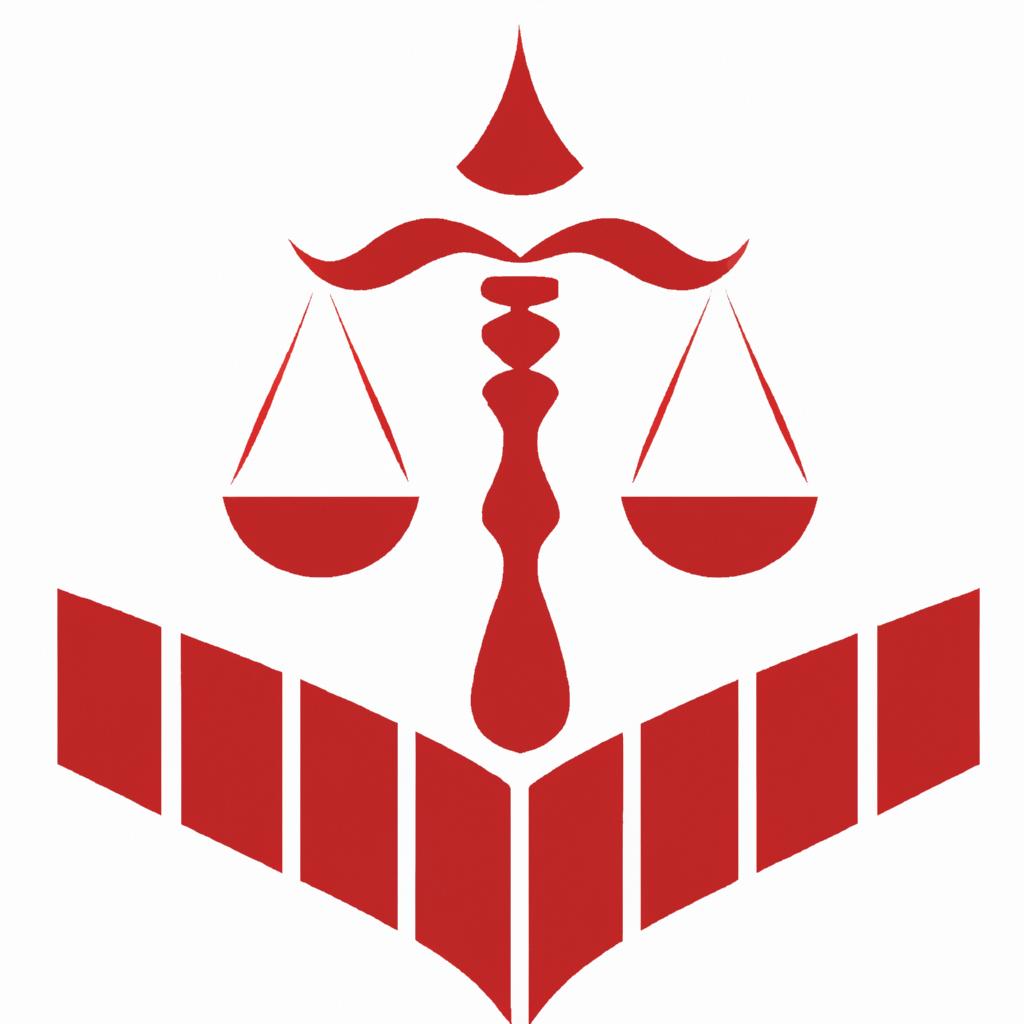In the realm of legal matters, the foundation of any successful relationship is trust. As seasoned professionals in the field of estate planning, probate, elder law, Wills, and trusts, we at Morgan Legal Group understand the paramount importance of fostering trust with our clients. In order to shed light on this crucial element, we delve into the three fundamental pillars that uphold the construct of trust – the 3 C’s. Join us as we unravel the intricate web of credibility, competence, and consistency that form the bedrock of trust in our latest article.
Establishing a Foundation of Trust
Trust is a fundamental component of any successful relationship, whether personal or professional. In order to establish a strong foundation of trust, it is important to understand the 3 C’s of trust: consistency, competence, and communication.
Consistency: Consistency is key in building trust. Being reliable and predictable in your actions and behaviors helps to create a sense of security and dependability for others.
Competence: Demonstrating competence in your skills and knowledge instills confidence in others that they can trust you to get the job done effectively and efficiently.

Building Confidence through Consistency
When it comes to , one must understand the importance of trust in any relationship. Trust is the foundation upon which confidence is built, and without it, consistency alone is not enough. The 3 C’s of trust are communication, competence, and character.
- Communication: Clear and open communication is essential in establishing trust. It is important to be transparent, honest, and reliable in your interactions with others.
- Competence: Demonstrating your skills and abilities consistently over time will build trust in your capability to deliver results.
- Character: Displaying integrity, ethics, and values consistently will show others that you are trustworthy and reliable.

Creating Open Communication Channels
Trust is the cornerstone of any successful relationship, both professionally and personally. In order to build and maintain trust, it is essential to focus on the three C’s: communication, consistency, and collaboration.
Effective communication is key to establishing open channels within a team or organization. When everyone feels heard and understood, it fosters a sense of trust and unity. Encouraging honest and transparent dialogue can help prevent misunderstandings and promote a culture of accountability and respect.
Consistency is another crucial element in building trust. By consistently delivering on promises and following through on commitments, you demonstrate reliability and integrity. Consistency in communication, actions, and decision-making helps establish a reputation for trustworthiness and dependability.
Lastly, collaboration plays a significant role in cultivating trust within a group. When team members work together towards a common goal, it builds a sense of camaraderie and mutual respect. By valuing diverse perspectives and fostering a culture of inclusivity, you create an environment where trust can thrive.
In conclusion, by focusing on the three C’s of trust – communication, consistency, and collaboration – you can create open communication channels that promote trust and strengthen relationships within your team or organization.
Evaluating Trustworthiness in Relationships
In , it is essential to consider the three C’s of trust: consistency, communication, and commitment. Consistency is key in building trust as it demonstrates reliability and dependability. When someone consistently keeps their promises and follows through on their commitments, it helps establish a sense of trust between individuals.
Effective communication is another crucial factor in determining trustworthiness. Open and honest communication fosters transparency and understanding, which are essential components of a trustworthy relationship. Furthermore, commitment plays a significant role in building trust as it shows dedication and loyalty to the relationship. By prioritizing the needs and well-being of the other person, a strong foundation of trust can be established.
Q&A
Q: What are the 3 C’s of trust?
A: The 3 C’s of trust are consistency, competence, and credibility.
Q: Can you explain consistency in relation to trust?
A: Consistency refers to the ability to dependably deliver on promises and follow through with commitments. When someone exhibits consistency, it builds trust because others know they can rely on them.
Q: How does competence contribute to building trust?
A: Competence involves having the skills, knowledge, and capability to effectively fulfill obligations and responsibilities. When someone demonstrates competence in their actions, it instills confidence and trust in their ability to perform.
Q: What role does credibility play in fostering trust?
A: Credibility is about being honest, reliable, and transparent in communication and behavior. It is essential for establishing trust because when someone is credible, others perceive them as trustworthy and genuine.
Q: Can the 3 C’s of trust be applied in different relationships?
A: Yes, the 3 C’s of trust are universal principles that can be applied in various relationships, whether personal or professional. Consistency, competence, and credibility are key factors in building and maintaining trust with others.
In Summary
In conclusion, the 3 C’s of trust – consistency, competence, and care – serve as the cornerstone of building and maintaining strong relationships. By embodying these values, we can establish trust with others and foster meaningful connections that stand the test of time. As we navigate through the complexities of human interaction, let us remember the importance of these fundamental principles in cultivating trust and harmony in our interactions. Trust, after all, is the glue that holds relationships together, and by understanding and embodying the 3 C’s, we can create a world built on trust and understanding.
 When it comes to building any kind of relationship, trust is the key ingredient. Whether it’s in personal or professional relationships, trust is what cements the bond and creates a sense of security and reliability. In today’s competitive business world, trust is more important than ever before. Consumers have numerous options to choose from, and they are more likely to give their business to companies they trust.
When it comes to building any kind of relationship, trust is the key ingredient. Whether it’s in personal or professional relationships, trust is what cements the bond and creates a sense of security and reliability. In today’s competitive business world, trust is more important than ever before. Consumers have numerous options to choose from, and they are more likely to give their business to companies they trust.
But how does one build trust? What does it take to establish a strong foundation of trust with customers, employees, or even with ourselves? The answer lies in the 3 C’s of trust: competence, character, and consistency. These three core elements are crucial in building and maintaining trust, both in personal and professional relationships. In this article, we’ll delve into the 3 C’s of trust and explore how they can be applied in different settings to foster strong and lasting relationships.
1. Competence: The Foundation of Trust
In any kind of relationship, trust begins with competence. It is the ability to do what you say you will do and demonstrate expertise in a particular area or field. When someone is competent, we believe in their ability to deliver on their promises and meet our expectations. This is especially true in professional relationships, where clients and customers rely on the competence of a business to provide quality products or services.
But competence isn’t just about having the right skills and knowledge. It also involves being transparent about your capabilities and limitations. People are more likely to trust someone who is honest about what they can and cannot do. Admitting mistakes and taking responsibility when things go wrong also displays competence and can actually enhance trust rather than break it.
2. Character: The Building Block of Trust
While competence is the foundation of trust, character is the building block that strengthens it. Character refers to a person’s ethical and moral values, their principles, and how they behave in different situations. Consistency in character is essential in building trust because it shows that a person’s actions align with their words. When someone’s character is strong and consistent, they are seen as trustworthy and dependable.
In the business world, character plays a significant role in building trust with both customers and employees. A company that stands by its values and consistently demonstrates ethical behavior is more likely to gain the trust of its target audience. Similarly, leaders who have strong character traits, such as integrity and honesty, are more likely to earn the trust and respect of their team members.
3. Consistency: The Glue That Holds Trust Together
The final C of trust is consistency. It’s the glue that holds trust together. Consistency is all about delivering on expectations, meeting deadlines, and following through on commitments. When someone is consistent, we can rely on them to behave in a certain way, and this creates a sense of security and predictability.
In relationships, inconsistency can quickly erode trust. How many times have you heard the phrase “actions speak louder than words”? It’s because consistency is more than just saying the right things – it’s about actually doing them. In business, this means delivering on the promises made to customers, consistently providing quality products or services, and maintaining good communication.
BENEFITS AND PRACTICAL TIPS
Now that we have a better understanding of the 3 C’s of trust, let’s explore the benefits of applying them in our personal and professional lives, as well as some practical tips for building trust.
Benefits of the 3 C’s of Trust:
– Stronger relationships: By focusing on competence, character, and consistency, we can build stronger and more meaningful relationships, both personally and professionally.
– Enhanced credibility: When we are seen as competent and consistent, we earn the credibility and trust of others, which can lead to greater opportunities and success.
– Improved communication: By being transparent and delivering on promises, we set the foundation for open and effective communication, which is essential in building trust.
Practical Tips for Building Trust:
– Be reliable: Always keep your promises and follow through on commitments. This shows that you are dependable and can be trusted.
– Communicate effectively: Good communication is key in building trust. Be transparent and make sure your actions align with your words.
– Embrace diversity: Respect and embrace diversity in thoughts, opinions, and backgrounds. This can help foster an inclusive and trustworthy environment.
– Be open to feedback: Actively seek feedback from others and use it to improve and strengthen relationships.
– Lead by example: As a leader, your actions have a direct impact on the trust and credibility of your team. Lead by example, and consistently demonstrate the 3 C’s of trust.
CASE STUDY: The Impact of Trust in Business
One company that has successfully applied the 3 C’s of trust in building strong relationships with its customers is Patagonia. This outdoor clothing and gear retailer has established itself as a trusted and ethical brand, which has had a positive impact on its bottom line. With a focus on providing high-quality products and being transparent about its ethical and sustainable practices, Patagonia has earned the trust and loyalty of its customers, resulting in a thriving and socially responsible business.
FIRST-HAND EXPERIENCE: Applying the 3 C’s of Trust in Personal Relationships
As a business owner, I have seen firsthand the importance of the 3 C’s of trust in building strong and lasting relationships with my clients. By consistently delivering on my promises and demonstrating competence and strong character, I have been able to establish trust with my clients, resulting in long-term partnerships. Moreover, in my personal relationships, I have found that applying the 3 C’s of trust has helped me build deeper and more meaningful connections with my loved ones.
CONCLUSION
In conclusion, the 3 C’s of trust – competence, character, and consistency – are essential elements in building and maintaining trust in any kind of relationship. By focusing on these core components, we can foster strong and lasting relationships, both in our personal and professional lives. By being reliable, transparent, and consistent in our actions, we can earn the trust and credibility of others and create a more connected and trustworthy society.












